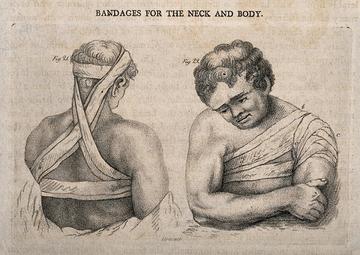Medical Humanities: new collaborations, increased potential
Louie Fooks reports on an interesting and productive ‘Humanities and Healthcare’ event which explored the future of Medical Humanities at Oxford
More than 40 people from different divisions and disciplines attended the Humanities and Healthcare event at Harris Manchester College on 12 June. The meeting revealed a real appetite for collaboration across humanities and health disciplines, sparked new contacts and potential research relationships, and helped identify the support needed to develop Medical and Health Humanities at Oxford.
“A really interesting afternoon and great to get a sense of the kind of health-related research going on beyond the Medical Science Division.”
Participant
After brief opening remarks setting Oxford’s Medical Humanities Programme within the context of national and international developments in the field, the event started with informal presentations from researchers already working across health and humanities.
- Professor Peter Friend shared his thoughts on how the humanities can help medical students to develop non-clinical skills such as empathy and communication, and his experience of organising and teaching on the Medical Humanities Summer School.
- Professor Sally Shuttleworth talked about how her historical investigation of disease and the development of early scientific communities had thrown light on modern healthcare issues, including today’s conceptions of disease and well-being.
- Professor Joshua Hordern reflected on what he had gained from collaborating across disciplines and engaging with healthcare practitioners, in terms of enriching his research and being able to contribute to healthcare organisations. He also talked refreshingly about where productive collaborations had failed to secure research funding and what he had learnt from the experience.
Professor Chas Bountra then reflected on the insights offered by the speakers and talked about the potential of humanities to contribute to addressing healthcare challenges such as ageing, cancer and chronic disease. He called on researchers to collaborate, innovate, and to work flexibly and fast to help accelerate new responses to disease and ill-health, and new treatment options.
“I felt a renewed energy around my interdisciplinary work when I left and a strong sense of community and shared purpose amongst healthcare humanities scholars here in Oxford.”
Participant
One objective of the meeting was to share information about potential internal funding streams and three speakers introduced researchers to the Funds for which they were responsible.
- Professor Matthew Freeman presented information about the Wellcome Institutional Strategic Support Fund, which is open to applications from all parts of the university. The Fund particularly encourages cross-divisional bids and Professor Freeman pointed out that Humanities are currently under-represented in awards. For more information on the ISSF click HERE.
- Caroline Thompson and Peter Barber talked about the John Fell Fund, which offers small awards of up to £7500 and larger awards of over £7500. For more information on the Fell Fund click HERE.
- Matt Smart introduced the Knowledge Exchange Seed Fund, which offers grants of up to £5000 for early-stage innovative knowledge exchange ideas. For more information on the KE Seed Fund click HERE.
For a leaflet on other Wellcome funding streams for medical humanities, click below (PDF):
Discussion and feedback
Group work and discussion helped to identify some of the opportunities, barriers and support needed for medical and health humanities going forward.
Many participants were enthusiastic about the opportunity to gain new perspectives on their research through collaboration across disciplines, as well as the opportunity to work with government, public bodies and others and contribute to the development of real world policy and practice. A number of barriers to collaboration were identified, however, including not knowing who does what, and therefore whom to work with, as well as some more technical considerations such as the difference in language between disciplines, questions over ownership of findings, and the difficulty of publishing multi-disciplinary research in subject-specific journals
In terms of support needed, many participants requested further networking and introduction events. Beyond this, there were requests for stronger strategic support within the university for such collaborations, and more direct support and advice on developing multi-disciplinary proposals.
The Humanities and Healthcare team will follow up this first event in Michaelmas Term with a Medical Humanities networking event and a workshop to build policy engagement capacity for researchers in the Humanities Division.
For further information contact Louie Fooks, Humanities and Healthcare Policy Officer on louie.fooks@theology.ox.ac.uk. To join the Medical Humanities mailing list please contact Bianca Blum on bianca.blum@humanities.ox.ac.uk
“The event provided support and energy to help me pursue building my network and projects.”
Participant



